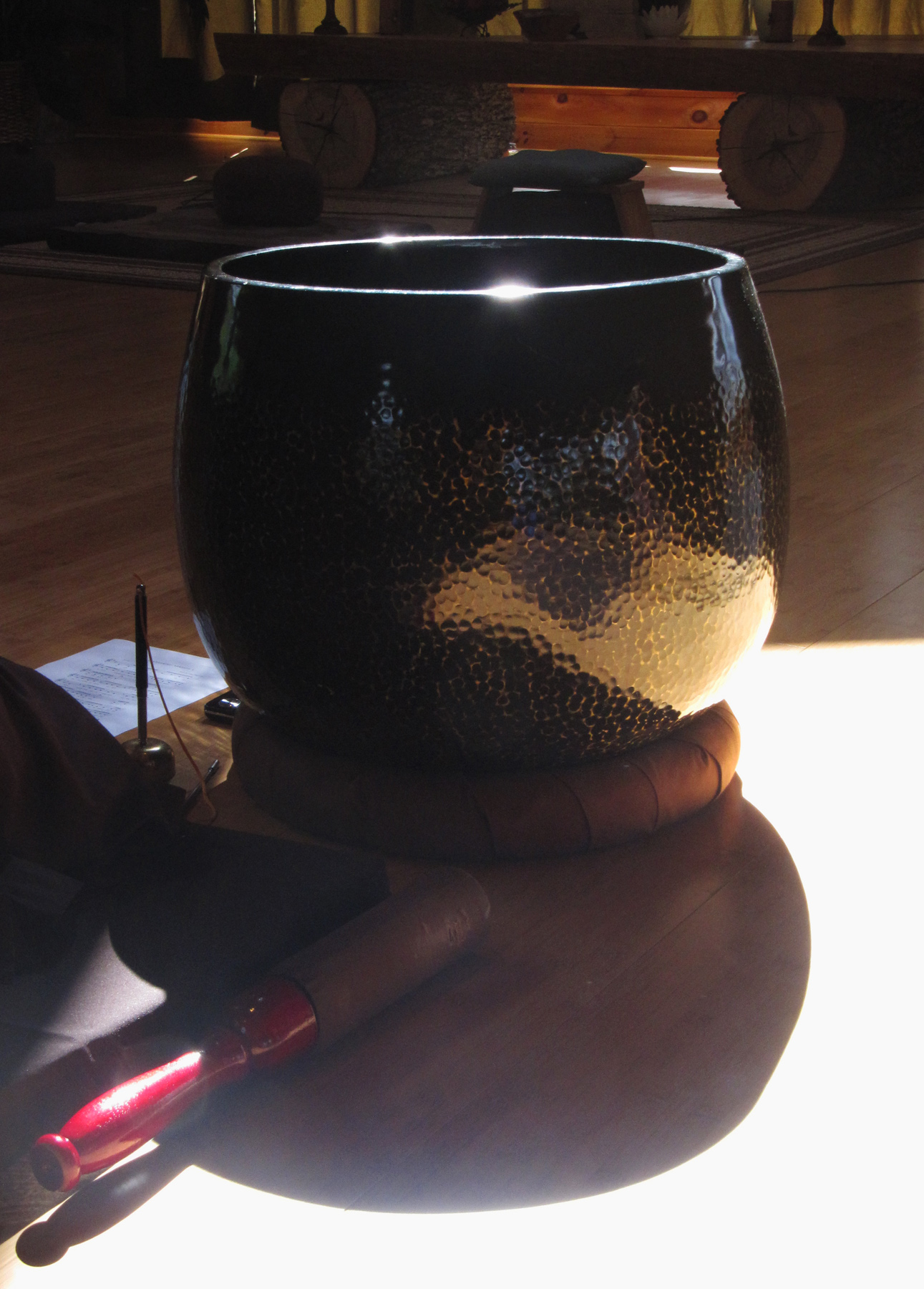By Robin Lee Schiff and Joost van Rens
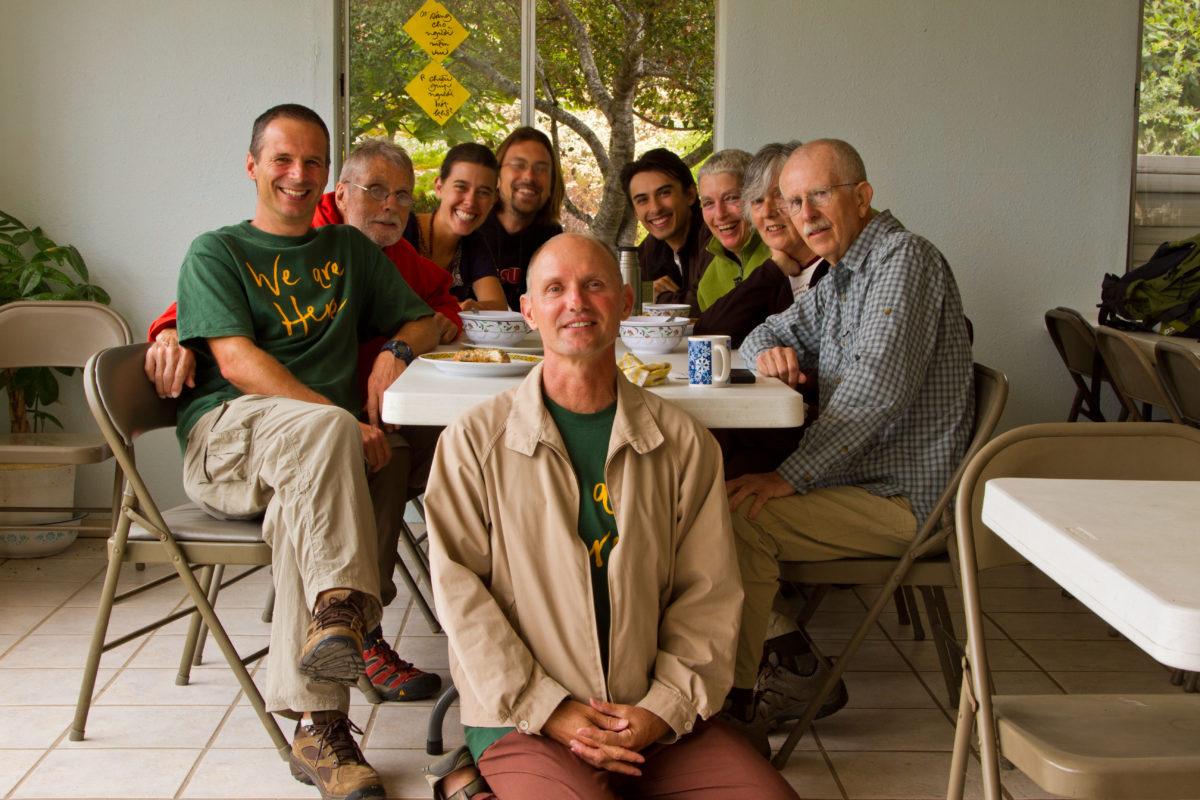
Robin: Yesterday evening we were lying on the smooth sun-warmed road that winds its way down the mountain at Deer Park Monastery, watching the moon rise over the crest of the ridge, enjoying the coolness of the evening after a hot sunny day. As we listened to the coyotes calling to each other,
By Robin Lee Schiff and Joost van Rens

Robin: Yesterday evening we were lying on the smooth sun-warmed road that winds its way down the mountain at Deer Park Monastery, watching the moon rise over the crest of the ridge, enjoying the coolness of the evening after a hot sunny day. As we listened to the coyotes calling to each other, we both felt a deep sense of happiness, marveling at the way our life has been unfolding. Nowhere to go, nothing to do.
Joost: We have been visiting Plum Village since 1997 and Deer Park Monastery since 2002. Over the years it has become clear that we are happiest when we are spending time at the monastery with the monks and nuns, being part of the fourfold Sangha. We began to notice after each retreat that our priorities shifted effortlessly into deeper harmony with the Five Mindfulness Trainings, and that making conscious decisions and choices to create positive change became much easier. In 2004, toward the end of the nine-week winter retreat at Deer Park, Robin looked deeply in meditation and resolved to change our lifestyle in such a way that we would spend at least three months each year at Deer Park. She called it a ten-year plan, and said, “I don’t know how it will happen; I only know that within ten years we will be doing this.” I readily agreed. In the end it took us only three years to accomplish this goal.
At Home in the Netherlands
Joost: I worked for almost twenty years as a medical doctor in a non-profit center in a poor neighborhood in The Hague, where I saw thirty to forty patients a day, most of them immigrants. I was also politically active in the health-care field because most of the health problems of my patients were poverty-related. I used all the tools I had learned in Plum Village and Deer Park Monastery to deal with the high levels of stress at my work: mindful walking in my office, conscious breathing during and between consultations, loving speech and deep listening with patients and colleagues. I hung pictures of Thay on the wall as mindfulness bells, and I tried to treat each patient as if he or she were my mother, father, sister, or brother. But I was also in the habit of drinking one to two Belgian beers after work to be able to relax because I would come home tense and exhausted. During the 2004 winter retreat I engaged in several weeks of deep self-inquiry, well supported by Sangha friends, as to why I liked to drink. At the end of the retreat, Robin and I undertook the Five Mindfulness Trainings. I decided afterward to give up alcohol completely. Within a year after I stopped drinking, it became very clear to me how high and unsustainable the stress levels were at work. This realization catalyzed me to change my life.
Robin: I teach tai chi as a form of mindfulness meditation. In our studio at home in The Hague, employees of UN agencies participated in classes, as did lots of other people who read the brochures I left in public libraries, bookshops, and natural food stores. Joost and I hosted weekly Sangha mindfulness mornings as well.
I have had a daily practice of sitting meditation since I was sixteen years old, but Thay’s book Old Path White Clouds inspired me greatly and led me to change to a Plum Village style of practice, particularly after our first visit to Plum Village in 1997. The advice given to me then by Sister Gina was to spend less time sitting and to try to take meditation off the cushion and into every aspect of my daily life. This has been enormously healing and transformative for me, closing the disturbing gap that had widened over the years between my “spiritual” life on the cushion and the rest of my experiences. Each time we came back from Deer Park we noticed that we were less attached to our worldly possessions. It was becoming clear that our true happiness was not dependent upon these things. In 2005, our son Seth graduated university and landed a contract teaching English in Japan. Knowing that Seth could now earn his own living catapulted me into a phase change, which I describe as the end of the nesting instinct. I saw myself as a bird flying out of the nest and into the immense blue sky.
Joost and Robin: After a year of research, planning, number crunching, and deep looking, we were ready to commence the process of selling our house and other possessions, quitting our jobs, and leaving the Netherlands. Our plan was to live six or seven months per year in Australia or New Zealand, where Joost could work as a roving medical doctor. (This is possible because there is a great shortage of doctors in rural areas in both countries.) We would have no fixed base but would move from location to location, wherever doctors were needed.
Joost: Both of us come from families that play it safe in making life choices. We noticed fears arising, triggered by the unconventional choices we were making. We both had to recognize, embrace, and find ways to transform these fears, step by step, as we developed and implemented our plans.
In August 2006, Robin began fixing up our house to put it up for sale the following spring. We started giving away our furniture, library, music CDs, clothing, beds, kitchenware, bicycles—everything—to our families and to friends who were planning to start a Buddhist retreat in England. It took a year to mindfully divest ourselves of all the possessions we had previously cherished. We each left the Netherlands with forty kilograms of possessions. Leaving my family behind, especially my 85-year-old father, was especially poignant because my mother had died just three months before. I taught my father to use Skype, and we now speak on the phone or Skype every two days. We keep in close contact—via Skype—with our son, who is now twenty-six years old and studying law. The other emotional hurdle was fi a new home for our twenty-two-year-old black cat, Zumbro. As of this writing, Zumbro is still alive and thriving with a couple of our friends in Amsterdam.
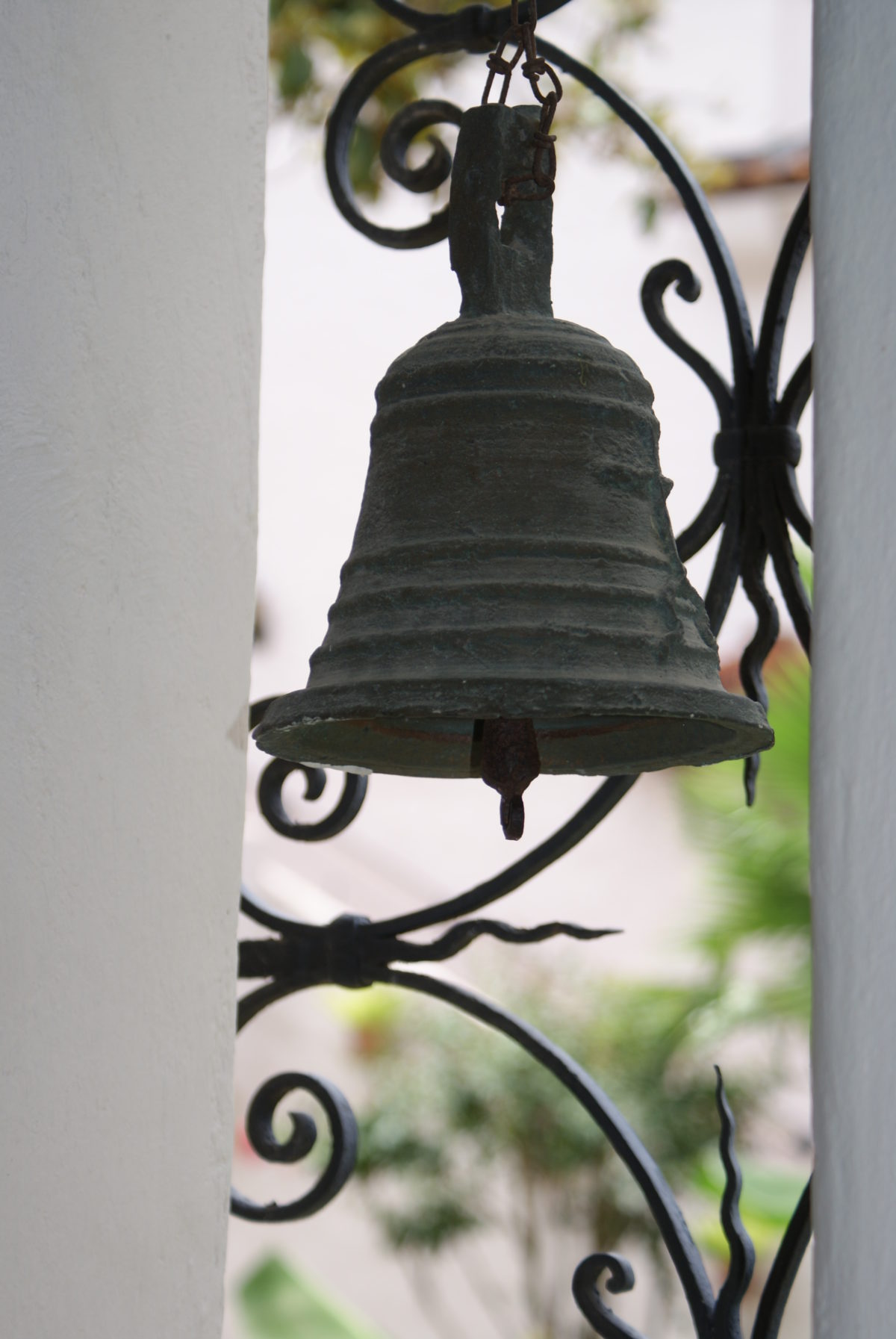
At Home Wherever We Are
Robin: Each work assignment in Australia and New Zealand comes with a temporary house and the use of a car. We never know what kind of house it will be until we arrive. People ask us if it is difficult to have no home of our own, but the practices of mindful walking and breathing have helped us to be at home wherever we are. We have stayed in many remote rural locations all over Western Australia and New Zealand, and usually by the time we have unpacked our bags we feel at home. The amount of time we remain in each location averages about five weeks.
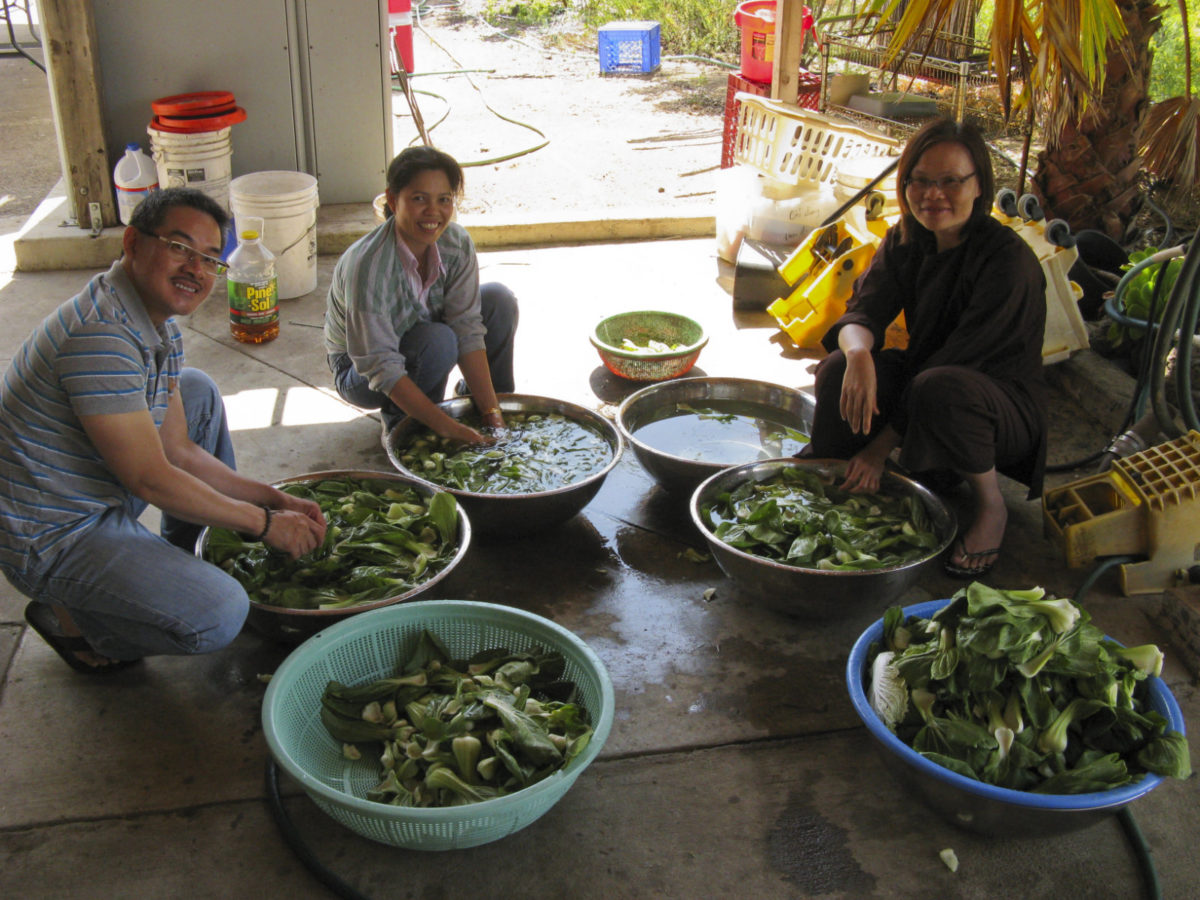
Joost: While I was working in the Netherlands, it felt as though my work never stopped. Now I know that each year I will spend at least three months at Deer Park Monastery. Even though working in rural areas can be very challenging, I have much more joyful energy for my work. We also have considerably more free time to appreciate the beauty of nature and to feel gratitude for our relationship.
Robin: Every day during our first year in Australia, I would imagine, before I started eating breakfast, that one of the trees I could see from the table was Brother Phap Ho, one was Brother Phap Dung, and one was Sister Faith or Sister Tue Nghiem, or whichever monastic arose in my thoughts. Now, two years later, the trees themselves seem to have so much presence, I no longer need to attach images of monastic friends to them to feel as though Sangha is all around me!
Joost: The frequent changes in our work and living environments help us to stay fresh and to practice “beginner’s mind;” they also encourage us to reduce our possessions even more, since we have to carry everything wherever we go. I have worked as a GP in many different types of practices, this year mostly in impoverished Maori towns. Robin works as our part-time manager to organize work assignments, contracts, tickets, housing, insurance, visas, etc. She also swims daily and teaches tai chi and meditation.
Robin: People often ask me, “Isn’t it difficult for you when Joost goes off to work and you are in a new place?” My natural attitude is that in each new place, some special opportunity will arise for me to learn something new, and/or to teach somebody who really wants to learn what I can offer. I only have to be present and aware to see the opportunity, to enjoy it, to give and receive. Of course, our new lifestyle has brought up new and different challenges. Visa immigration rules and medical board regulations change without warning, so we have to adjust our plans often. Fear comes up for us in these situations; but as we gain more experience by solving each predicament, we gain more confidence in being able to find workable solutions.
Joost: We are usually able to keep in contact with friends and family. Sometimes one of us experiences feelings of loss and loneliness when we are in a very remote place without internet or a good telephone connection. We sit with these feelings, let them come up, and hold them gently as if they were crying babies. Because we are a Sangha of two people, we are able to support each other well.
Life has become a journey. Deer Park has become our home base. Since we changed our life in 2007 and are now coming to Deer Park every year for three months, our practice has deepened and our happiness and understanding have been nourished. Each year we make new friends in the constantly changing Sangha at Deer Park, and our capacity to live happily in the present moment grows.
Robin: Friends ask us, “How long do you think you will keep doing this? When will you settle down somewhere, and where?” I tell them, “We’ll wait and see! Life is full of so many surprises; I figure we’ll just know these things when the time comes.”
Joost and Robin: This year when we came back to Deer Park, it felt as if we had been away for a couple of weeks instead of nine months. We just stepped back into the river of the Sangha.
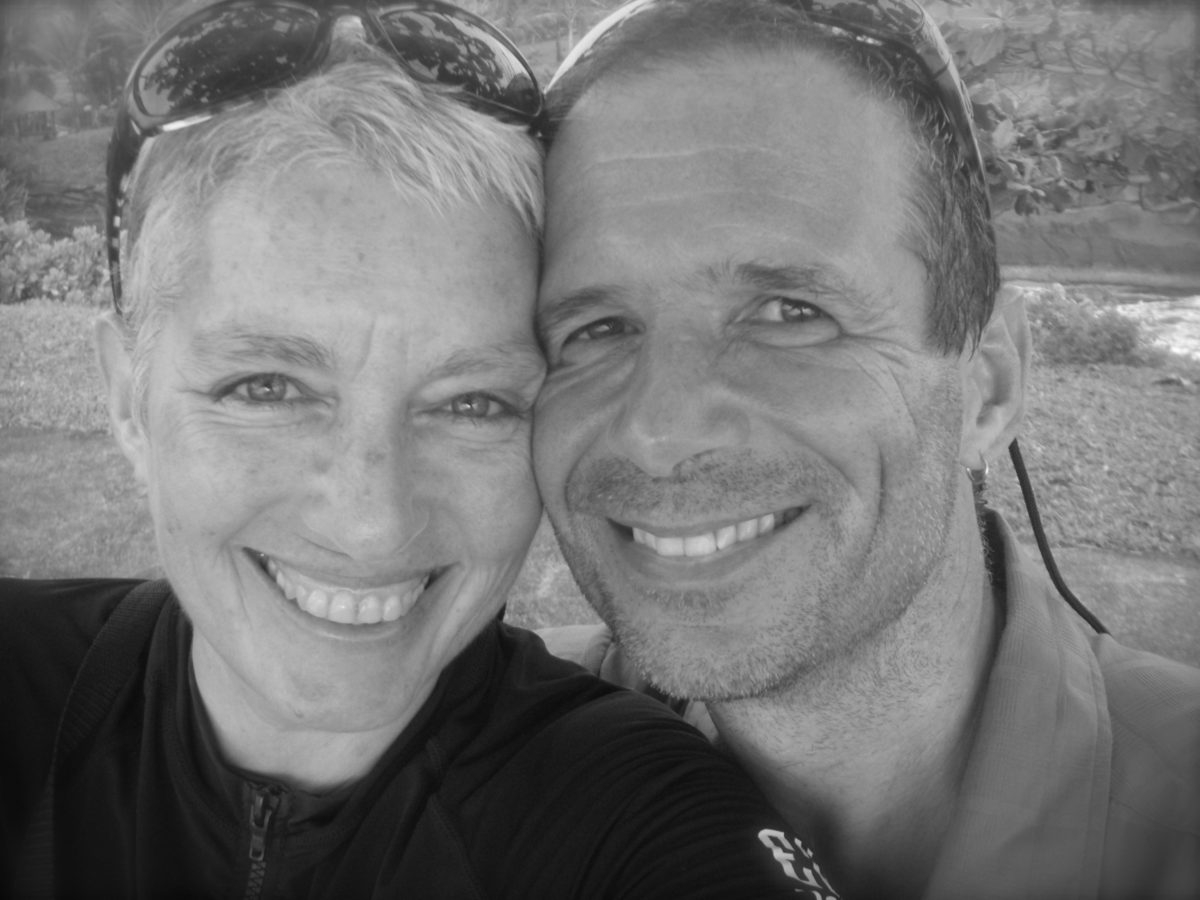
Robin Lee Schiff, Full Awakening of the Heart, was born in 1955 in Brooklyn, NY. Joost van Rens, Compassionate Action of the Heart, was born in 1958 in the Netherlands. They practice three months of the year with the Deer Park The rest of the year, they travel and practice together as the No Coming No Going Sangha.
July Moon
We lie in silence on the warm road
As the full moon slips above
The great hidden mountain
Its light penetrating and spreading
Like the Dharma in the Western world
And dear brothers and sisters
Our communication is perfect
--David Percival, True Wonderful Roots

